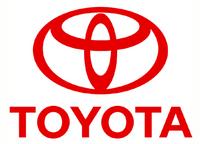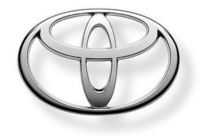Toyota President Serious About Cutting Costs
 |
Tokyo May 26, 2008; Tamaki Aikyo and Hiroyuki Kato writing for Yomiuri Shimbun reported that Toyota Motor Corp. is considering how to reduce its costs in response to the recent sharp rise in raw material prices, company President Katsuaki Watanabe told The Yomiuri Shimbun in a recent interview.
It is the first time Toyota has resorted to emergency cost-cutting efforts since 1993, after the economic bubble burst.
In the interview, Watanabe also set out the company's strategy for tackling environmental issues, including the introduction of next-generation plug-in hybrid electric vehicles, which people can recharge simply by plugging in at home.
The Yomiuri Shimbun: Toyota recently announced that it was expecting its first fall in revenue and profits in nine years this fiscal year [ending March 31, 2009]. What's behind this?
Katsuaki Watanabe: The tide of the world economy has changed due to three main factors.
One is the slowdown of the U.S. economy due to the subprime mortgage crisis. The second is the rapid growth of emerging economies and resource-rich countries. The third is the environment and energy issue.
Toyota has continued growing in recent years, so the younger generations of our employees have never experienced a profit decline.
But Toyota has experienced tough times before and I believe such periods are a good opportunity to strengthen our business and develop human resources capable of supporting a strong corporate culture.
The prices of steel products is to be raised by more than 20,000 yen per ton. How will you deal with this?
We've almost completed talks [with steel manufacturers] over prices. We're working on measures to reduce costs, but will also ask steel manufacturers to do the same. We'll work together with them, if necessary.
Japanese steel manufacturers are the world leaders in production of steel sheet products for cars. So we need their cooperation.
What will Toyota do to cut costs?
We've started what we call "emergency value analysis activities." We've formed teams to review every single part and component over the next six months to determine how to improve designs to reduce production costs further.
Some employees still lack awareness of these activities, but we plan to work on developing our human resources in tandem with this effort.
Do you plan to raise prices for your products in the domestic market?
Other automakers seem to be waiting for us to raise prices, but I don't think we're in a market environment that will tolerate price hikes.
But if prices for raw materials rise above a level that we can absorb, then we may have to consider this.
How do you see the current market environment?
In developed countries, it isn't good. The U.S. market for new automobiles will shrink to about 15 million cars this year, down about 1 million from last year.
However, the markets in emerging economies and resource-rich nations look solid. It's expected that about 10 million cars will be sold in China this year and the market there will continue expanding next year, I believe. But the growth in China's exports to the United States seems to be slowing, so we have to be careful about assuming that current trends will continue.
Do you have any plan to increase production in emerging economies?
It'll be necessary to raise production in China in future because we expect our sales there to increase by 700,000 cars this year. It likely will be necessary to beef up production capacity in India and Brazil, too.
In Russia, we have to raise our current production capacity of 20,000 cars per year to 50,000 cars as quickly as possible.
Can you explain Toyota's strategies for tackling environmental issues?
Toyota has been regarded as strong in environmental technologies due to its hybrid vehicles. But hybrid vehicles are increasingly seen as commonplace. So we have to develop more advanced products and introduce them to consumers.
We want to realize our goal to halve the size and cost of hybrid drive systems as soon as possible.
Toyota plans to release a plug-in hybrid electric vehicle with lithium-ion batteries some time in the 2010s. As a full-range auto maker [manufacturing vehicles ranging from trucks to compact cars], Toyota won't be able to cater to the market in each country without developing vehicles that can use a variety of fuels, such as gasoline, diesel fuel, hydrogen and electricity.
How do you see the relationship between truck maker Isuzu Motors Inc., with which Toyota has formed a capital alliance, and Toyota subsidiary Hino Motors Ltd.?
I think the two companies will develop their relationship, and benefit from it. So I don't think the two should merge soon or be integrated into one entity in the future.
However, Toyota has failed to expand its presence in the global market for commercial vehicles, so we may need Isuzu's support in the future. We likely will strengthen our capital alliance with Isuzu.
What qualities should the next Toyota president have? Will anyone from the founding Toyota family be named as the next president?
I don't think about my successor at all. I have a lot of other things to do. I've dedicated all my energy to the company, always working as if every year was my last.



